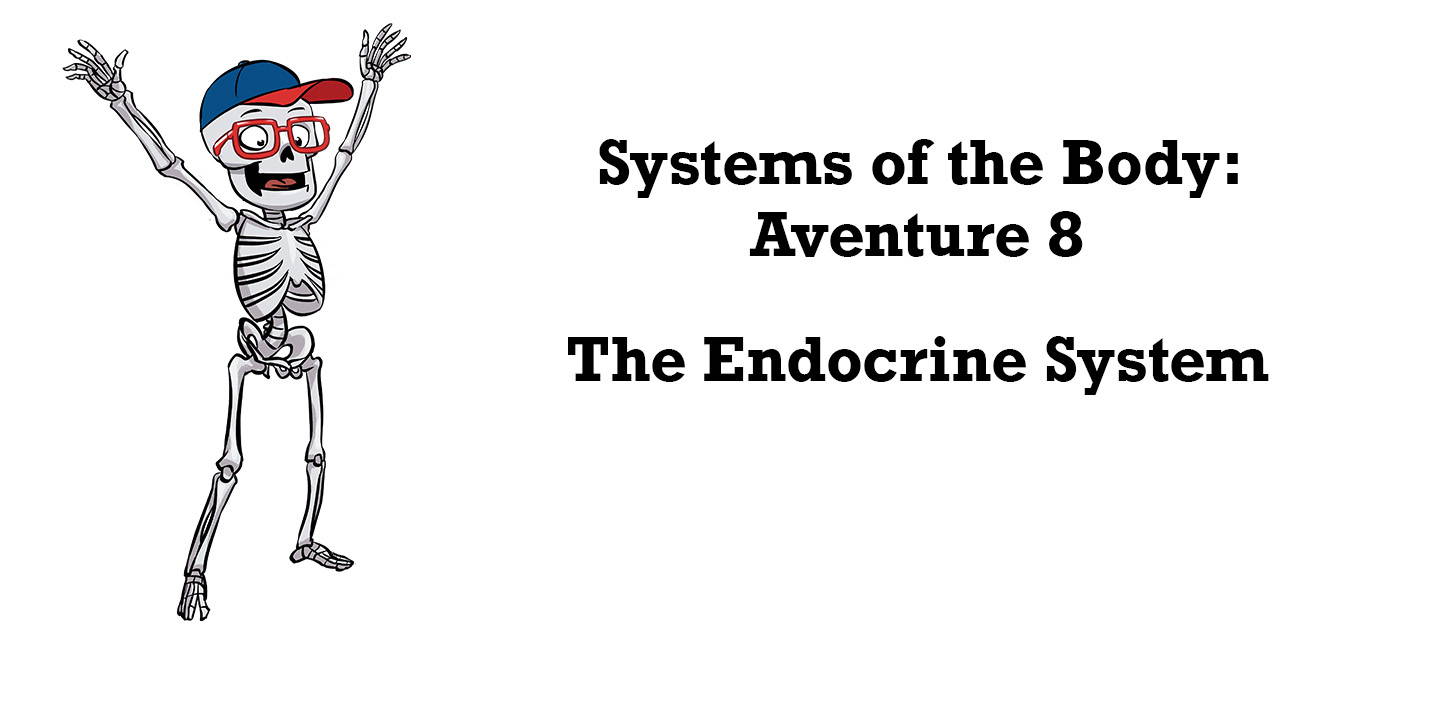
Hello, Adventurers! Today I’m answering your questions about the endocrine system—the system in your body that regulates all kinds of important functions inside of you. Your brain and other organs do this by sending out signals in the form of hormones, which instruct parts of your body to grow, adjust temperature, process nutrients, and almost everything else that keeps you up and running. At any given time, your hormones might be telling you that you need to eat, take a nap, or put on a sweatshirt…mine are telling me to move on to your questions.
Remember that you can ask me, Dr. B., anything about your body. Submit your questions below!
When I walk past a bakery and smell chocolate chip cookies, I feel hungry even if I wasn't hungry before. Why does that happen?
Mmm…I love chocolate chip cookies too, but for some reason, they go right through me…. We don’t often think about what makes us hungry, but it turns out it’s a well-orchestrated conversation between your gut, your brain, and hormones in your blood and tissues, which we call yourappetite.
To understand why you get hungry, it’s easier to start with what makes you feel full, or satiated. The hypothalamus (say it like this: hi-puh-THA-luh-mus)—the command center of your brain—relies on signals from two important hormones to know if you need energy (which triggers your hunger). When you’re full, fat in meals or in your tissues uses leptin to send a message to the hypothalamus that you probably have enough energy and don’t need any more. Your hypothalamus assumes you need energy unless it’s getting these signals from leptin (i.e., your stomach is empty). Nerves in your digestive tract send messages when there is a physical sensation of food—you recognize this as “feeling full.”
While leptin helps keep your energy balanced long-term, ghrelin (GREH-lun), on the other hand, makes sure you know when you’re hungry now. Ghrelin is called the “hunger hormone,” because it’s produced when your stomach is empty and it tells your brain that you should eat. The nerves in your digestive tract sense that emptiness as well, and this stimulates your appetite.
However, you also get hungry when you smell something delicious, even if leptin has told your brain that you’ve just eaten. Why is this? Your sense of smell and your sense of taste are closely related (check out Adventure 1: The Five Senses to learn more)—so when you smell something you’ve really enjoyed eating before, your brain actually starts to anticipate that you’re about to eat what you’re smelling (even if you had no conscious intentions of doing so). Your olfactory (ol-FAK-tuh-ree) bulb—the part of your brain responsible for your sense of smell—starts to produce ghrelin, and your endocrine system starts making your mouth water and your stomach growl. All this because your brain thinks you’re getting ready to eat…which makes you hungry. Oh, look...those cookies just leptin my mouth!
My friend has diabetes and needs to take special medicine. What does this mean?
Thanks for your question, and for taking an interest in your friend’s health! Diabetes is a condition where the body’s cells can’t get energy, or glucose, from the bloodstream. Typically, when you eat, your pancreas (say it like this: PAN-cree-us) produces the hormone insulin (IN-suh-lin), which travels in the bloodstream alongside the glucose from the food you’ve eaten. The insulin acts like a key to unlock the cells so the glucose can enter; then the cell uses the glucose as energy. Without the insulin, the cells remain “locked” and the glucose can’t get in.
You’ll often hear about “type 1” or “type 2” diabetes. In type 1 diabetes, the pancreas makes little or no insulin at all. In type 2 diabetes, the cells are unable to process the insulin that the pancreas produces—in other words, the insulin key doesn’t work. Either way, the cells can’t use the glucose for energy, and without it, someone with diabetes may feel tired, get sick often, or lose weight. They also may go to the bathroom a lot, since their body is trying to get rid of the extra glucose in the bloodstream through their urine.
Fortunately, there are effective treatments for both forms of the disease. Someone with type 1 diabetes monitors how they feel to know whether their glucose (also called “blood sugar”) levels are too high or too low. They can also use a special kit to test their blood. If it’s too low, they can have something to eat or take special tablets. If it’s too high, they can give themselves insulin, which unlocks the cells and allows them to use up the extra glucose. Those with type 2 diabetes sometimes don’t need insulin if they can make effective lifestyle changes; and sometimes they need additional medications that help their body to use insulin more effectively. It sounds like your friend is getting the medical care they need to live a healthy life.
Get ready to learn the wonders of the Endocrine System! Travel to 1950’s Cuba and meet the baseball teamThe Sabuesos, who learn the importance of how to work together - just as your Endocrine System does to regulate, control, and coordinate your bodily functions!









Leave a comment (all fields required)